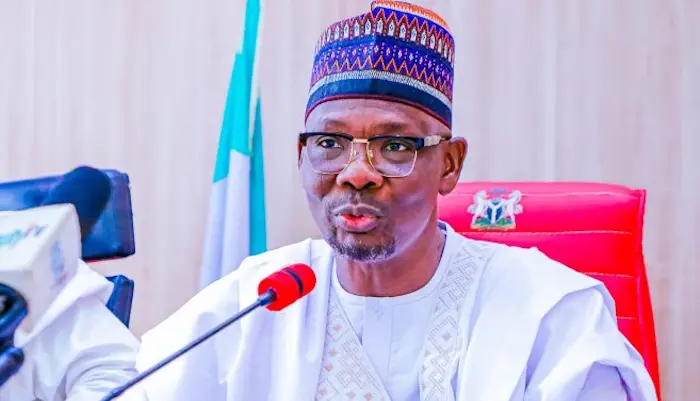A Nigerian state governor has dismissed the potential influence of a newly formed opposition coalition ahead of the 2027 general elections, claiming internal divisions within rival political groups could work in favor of the ruling party’s stability. Nasarawa State Governor Abdullahi Sule, a member of the governing All Progressives Congress (APC), argued Friday that the emergence of the African Democratic Congress (ADC) as a coalition-backed platform had fragmented rather than unified opposition forces, reducing their electoral threat.
Speaking after a meeting with APC National Chairman Prof. Nentawe Yilwatda in Abuja, Sule downplayed the ADC’s significance, stating the party emerged from splits within other opposition factions. “If it is a split from another party, they are only getting weaker. We are not worried about that,” he said, emphasizing the APC’s focus on governance over political rivalries.
The governor reiterated his party’s commitment to prioritizing policy implementation, aligning with President Bola Tinubu’s “Renewed Hope Agenda” — a platform centered on economic revitalization and public service reforms. “We are more concerned about our strengths and delivering for Nigerians,” Sule added, noting that state-level APC leaders remain concentrated on “supporting the administration’s goals.”
His remarks come amid debates over Nigeria’s political realignments, with multiple parties seeking to consolidate influence ahead of the 2027 polls. The ADC, formed through a merger of smaller opposition groups earlier this year, has positioned itself as a alternative to the APC and the main opposition Peoples Democratic Party (PDP). However, Sule suggested such efforts risk diluting opposition cohesion.
During the Abuja meeting, the governor also praised the election of Yilwatda as APC chairman, describing it as a resolution to longstanding regional representation disputes. The North-Central geopolitical zone, where Nasarawa is located, had previously criticized the party’s leadership structure for marginalizing the region. “With Yilwatda’s appointment, our grievances are addressed,” Sule said, framing the move as part of a broader strategy to strengthen internal unity.
Political analysts note that the APC’s consolidation efforts, coupled with opposition fragmentation, could shape Nigeria’s electoral dynamics in the coming years. However, challenges such as economic instability and security concerns remain pivotal issues for voters. Sule’s confidence in his party’s trajectory reflects a broader narrative within the APC, which has governed Nigeria since 2015 but faces growing public scrutiny over policy outcomes.
As political maneuvering intensifies, the focus on regional representation and party cohesion underscores the complex balancing act required to maintain dominance in Nigeria’s diverse and competitive democracy.
